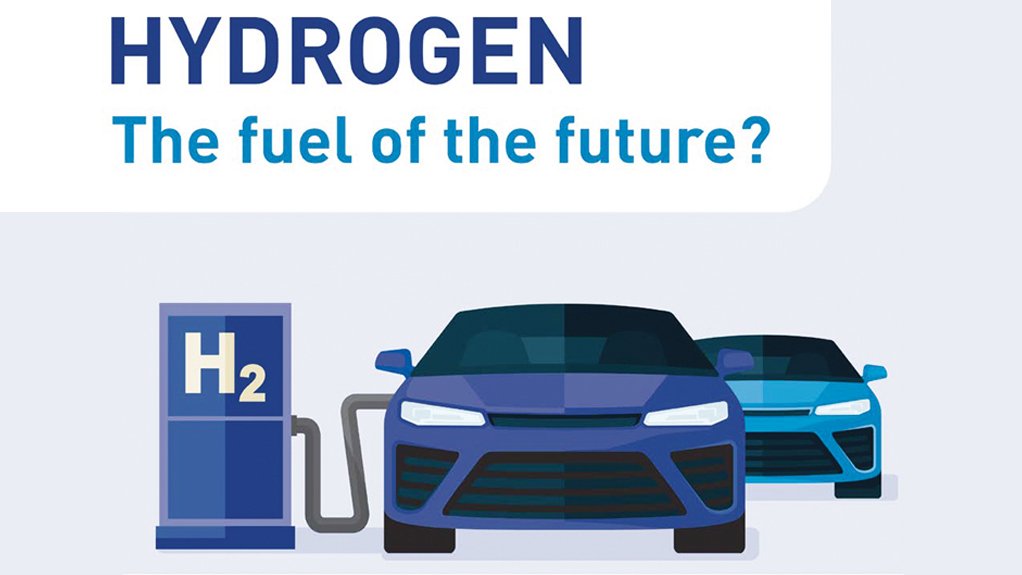JOHANNESBURG (miningweekly.com) – Air will be cleaner when it leaves the engine of a new hydrogen fuel cell electric car than when it enters the engine of the car, Hyundai states in a double-page advertisement in the latest edition of The Economist.
This ultra-clean-air automotive advance comes against the backdrop of government regulations and consumers placing ever-increasing pressure on vehicle manufacturers to clean up their act, and of South Africa's platinum helping the automotive world to achieve zero emission.
Headlined ‘protecting the planet together’ and sub headlined ‘Hyundai’s collaboration…envisions an end to pollution’, the South Korean multinational automotive manufacturer draws attention to the world needlessly becoming so accustomed to car-generated air pollution that its cleaner-outgoing-air statement has been viewed with scepticism.
“We are so used to our cars being a source of smells, smoke and noise that the statement almost invites disbelief,” Hyundai states.
Displaying a picture of the car under the sub headline ‘hydrogen, the positive energy for a better future’, the car manufacturer states that Hyundai Nexo runs on a fuel-cell system that combines compressed hydrogen fuel with oxygen taken from the air to produce electricity without combustion.
The car’s air-processing system supplies air to the fuel cell stack in the precise quantities needed, with the additional benefit of purifying polluted air making it the ultimate source of clean energy, Hyundai global chief marketing officer Wonhong Cho points out.
Particulates smaller than 2.5 micrometres – dreaded tiny PM2.5 particulate matter that penetrates deeply into the lung, irritates and corrodes the alveolar wall, and consequently impairs lung function – are prevented from entering the air by a high-performance air filter.
Mining Weekly can report platinum mined in South Africa is serving as the catalyst in hydrogen fuel cells and that platinum group metals (PGMs) have a particularly strong collective role to play in the future of basic industries, such as electricity and food production, as well as innovative technologies such as renewable energy, smart grids, electric vehicles and hydrogen fuel cells.
Proton exchange membrane (PEM) fuel cells, which are platinum catalysed, are the fuel cells of choice for road transport because of their low operating temperatures, high efficiencies, lightness and small volume.
These modular fuel cells can be stacked in series to create higher power output, emit zero greenhouse gases and enjoy the high energy density that hydrogen provides.
Fuel cell electric vehicles using PEM fuel cells can refuel in three to five minutes. Nexo refills in five minutes and can be driven for 609 km on a single refill.
The use of hydrogen fuel cell technology is spreading rapidly across many countries in mobile and stationary applications.
Recent reports reaching Mining Weekly include:
- a Toyota announcement of six companies that share a common vision for the widespread use of fuel cell electric vehicles in China signing a joint venture agreement for the establishment of United Fuel Cell System Research & Development, Beijing, for the development of fuel cell systems for commercial vehicles to contribute to the realisation of a clean mobility society in China. Toyota and Beijing SinoHytec are investing, Dong Changzheng has been appointed chairperson and Ryu Akita has been appointed CEO;
- Danish companies Moller-Maersk and Orsted partnering to produce 'green' hydrogen through a 10 MW-to-1 300 MW electrolyser powered by offshore wind installations;
- Hydrogen Council members Alstom and Snam signing a new five-year agreement to develop hydrogen trains and the necessary infrastructure for production, transport and refuelling in Italy;
- California Fuel Cell Partnership signing a memorandum of understanding with Toyota Motor Corporation to develop a hydrogen fuel cell system for maritime applications taking in the hydrogen tanks on Toyota Mirai fuel cell electric vehicles;
- the regional transportation commission of southern Nevada in the US awarding a $3.8-million grant to deploy two fuel cell electric buses and install hydrogen fuelling station;
- energy company SGH2 announcing the building of the largest 'green' hydrogen production facility in Lancaster, California;
- Hyundai investing in Hydrogenious Liquid Organic Hydrogen Carrier Technologies of Germany to expand liquid organic hydrogen carrier infrastructure in Asia and Europe as part of a low-emission hydrogen-powered economy vision;
- The German government presenting a national hydrogen strategy to make Germany a global supplier of advanced hydrogen technology involving the replacement of fossil energy carriers by hydrogen in industrial processes and hydrogen infrastructure for especially heavy-duty transport being significantly expanded;
- Germany establishing foreign economic partnerships with countries that are able to produce hydrogen efficiently, including South Africa, which has superior sun, prime wind, available land, port infrastructure and a PGMs endowment to facilitate the generation of ‘green’ hydrogen;
- renewable hydrogen projects worth more than a combined A$3-billion are vying for funding from the Australian Renewable Energy Agency to build the first commercial scale hydrogen projects in Australia;
- Mitsubishi Hitachi Power Systems securing an order from Intermountain Power Agency of Utah in the US for the first turbines designed to transition from coal to renewable hydrogen fuel as well as an order from Magnum Vattenfall 440 MW power plant, in the Netherlands, to transition to 100% hydrogen by 2025; and
- ‘green’ hydrogen being delivered to St Gallen, in Switzerland, for the first time with a newly designed container and on trucks that are themselves earmarked to be powered in future by hydrogen fuel cells.
The list could go on of countries and companies that are embracing hydrogen as the future universal carrier of the world’s solar and wind power.
EMAIL THIS ARTICLE SAVE THIS ARTICLE ARTICLE ENQUIRY
To subscribe email subscriptions@creamermedia.co.za or click here
To advertise email advertising@creamermedia.co.za or click here











